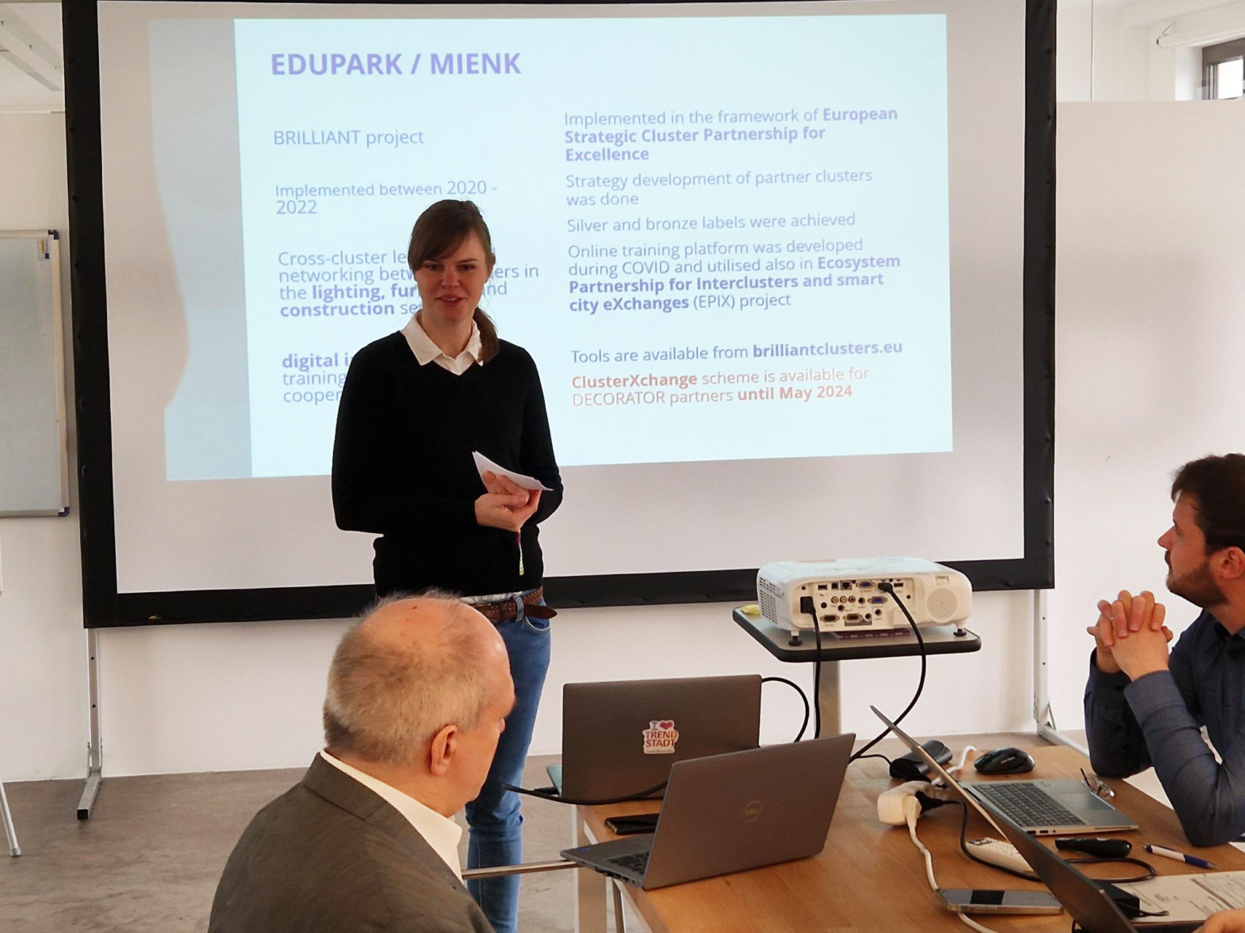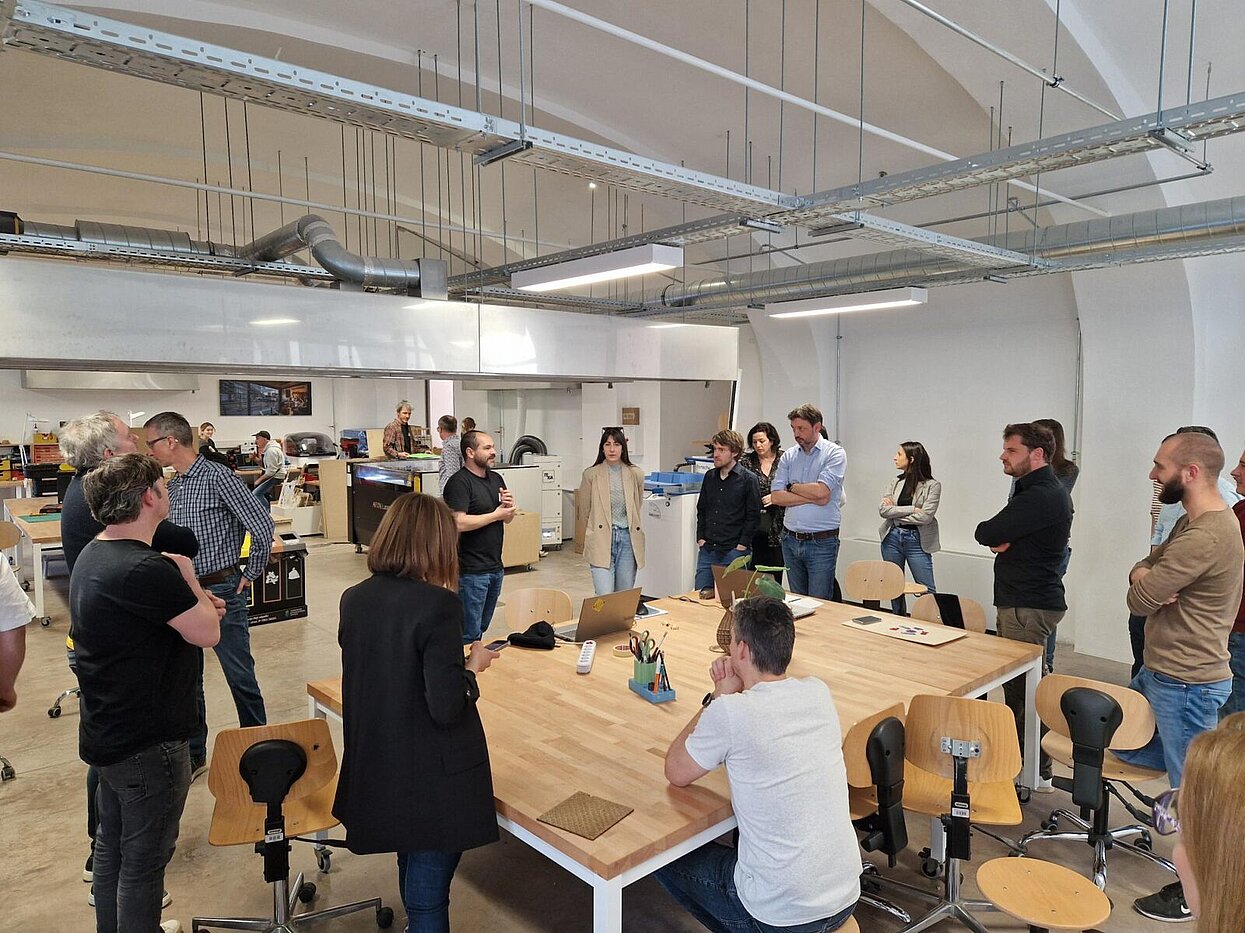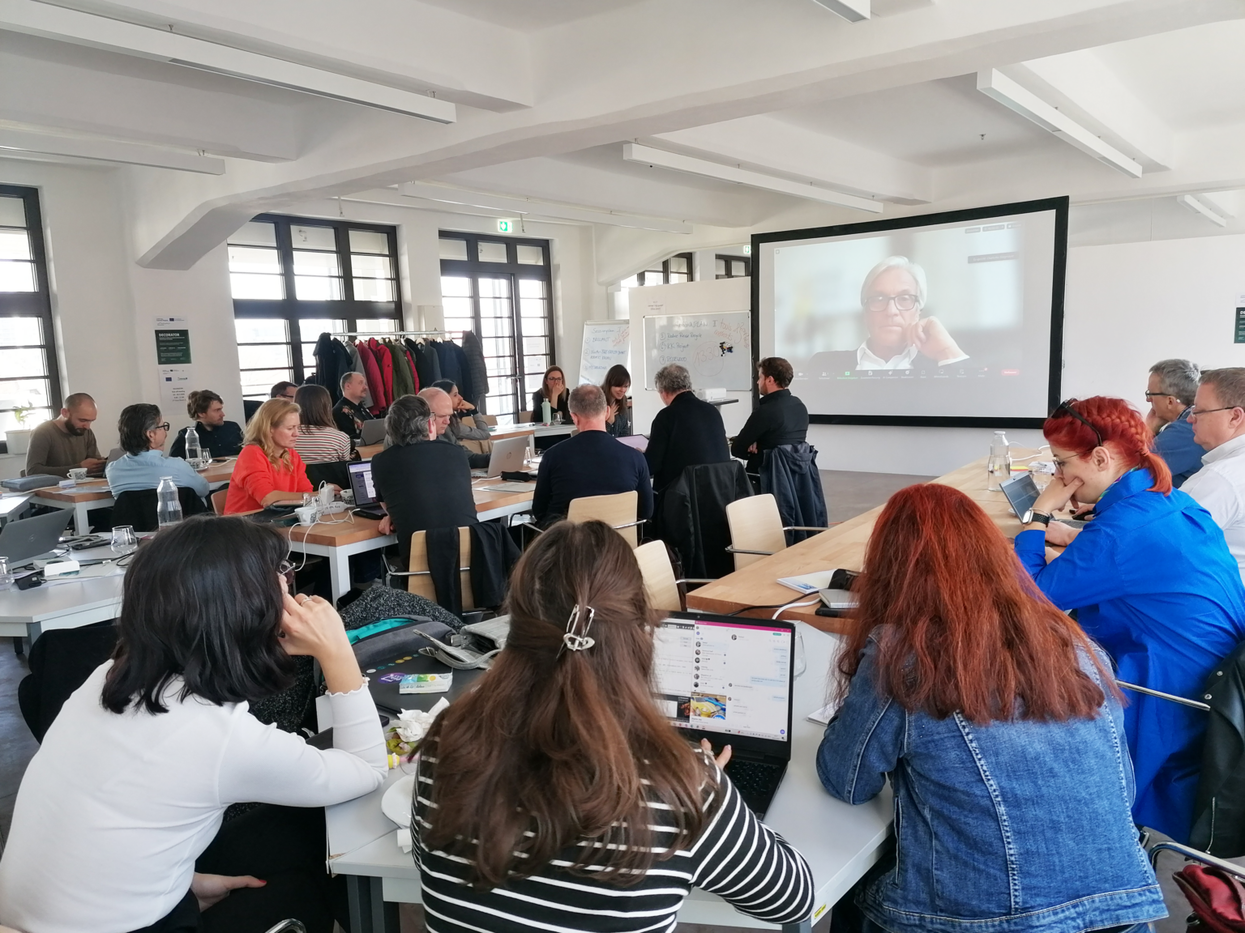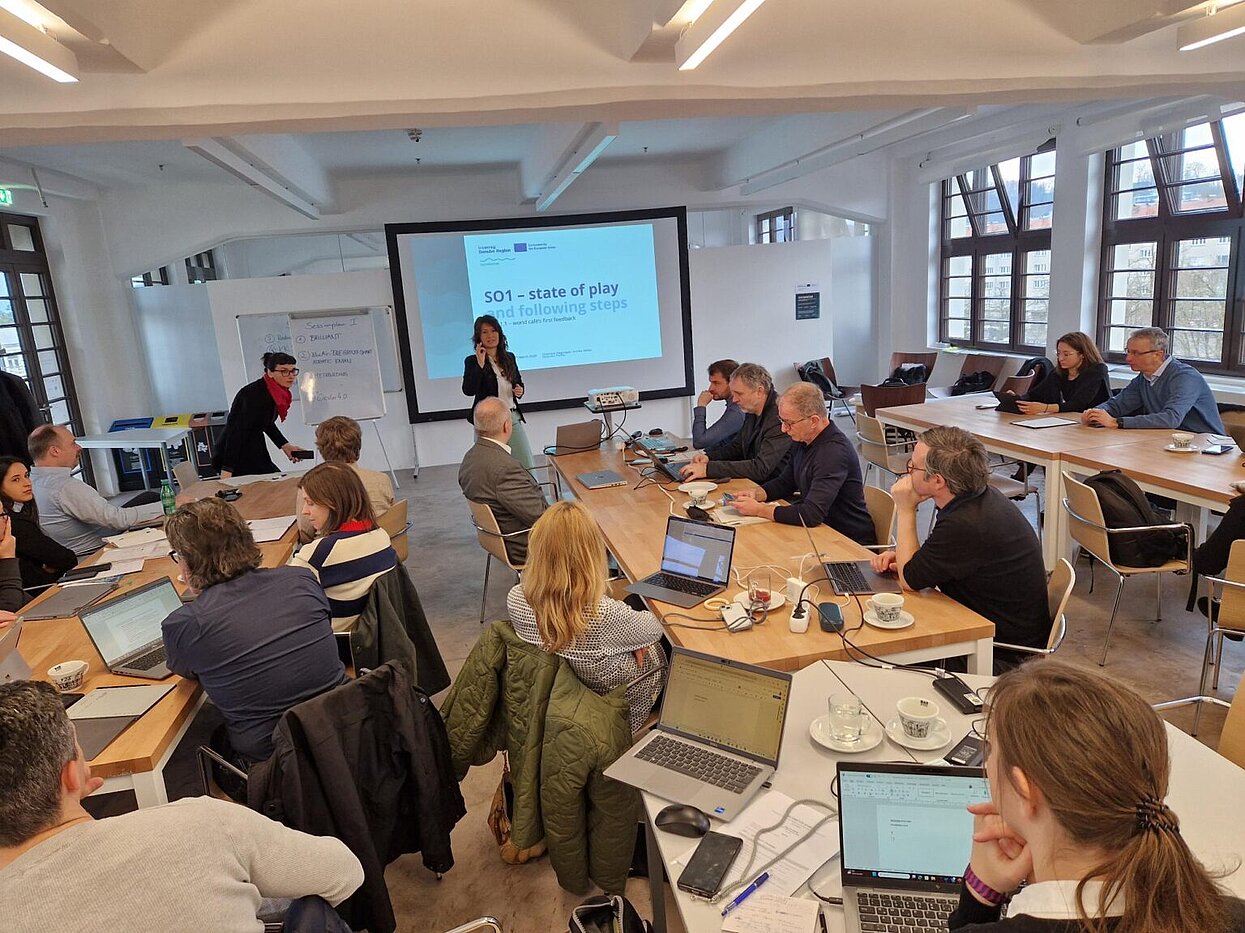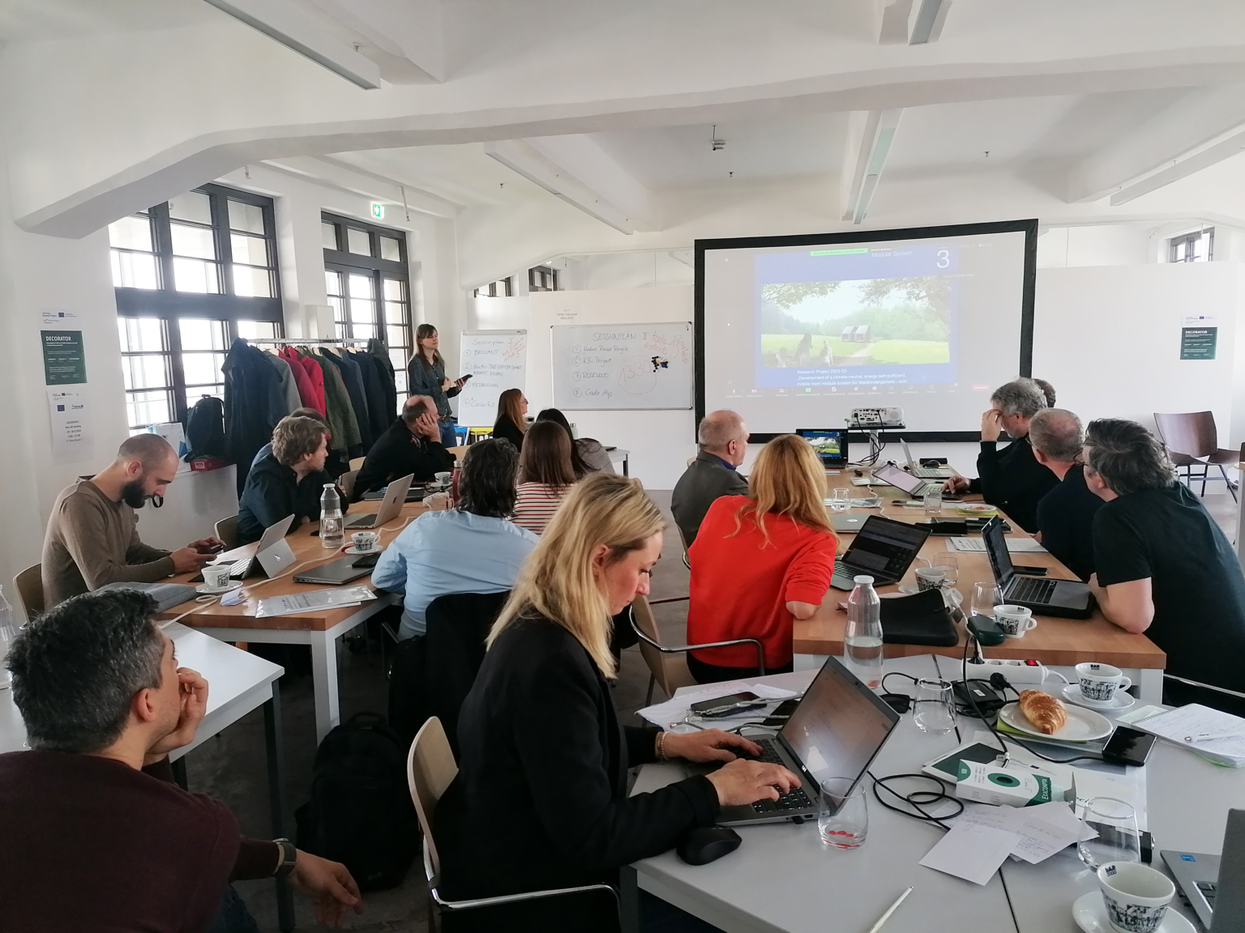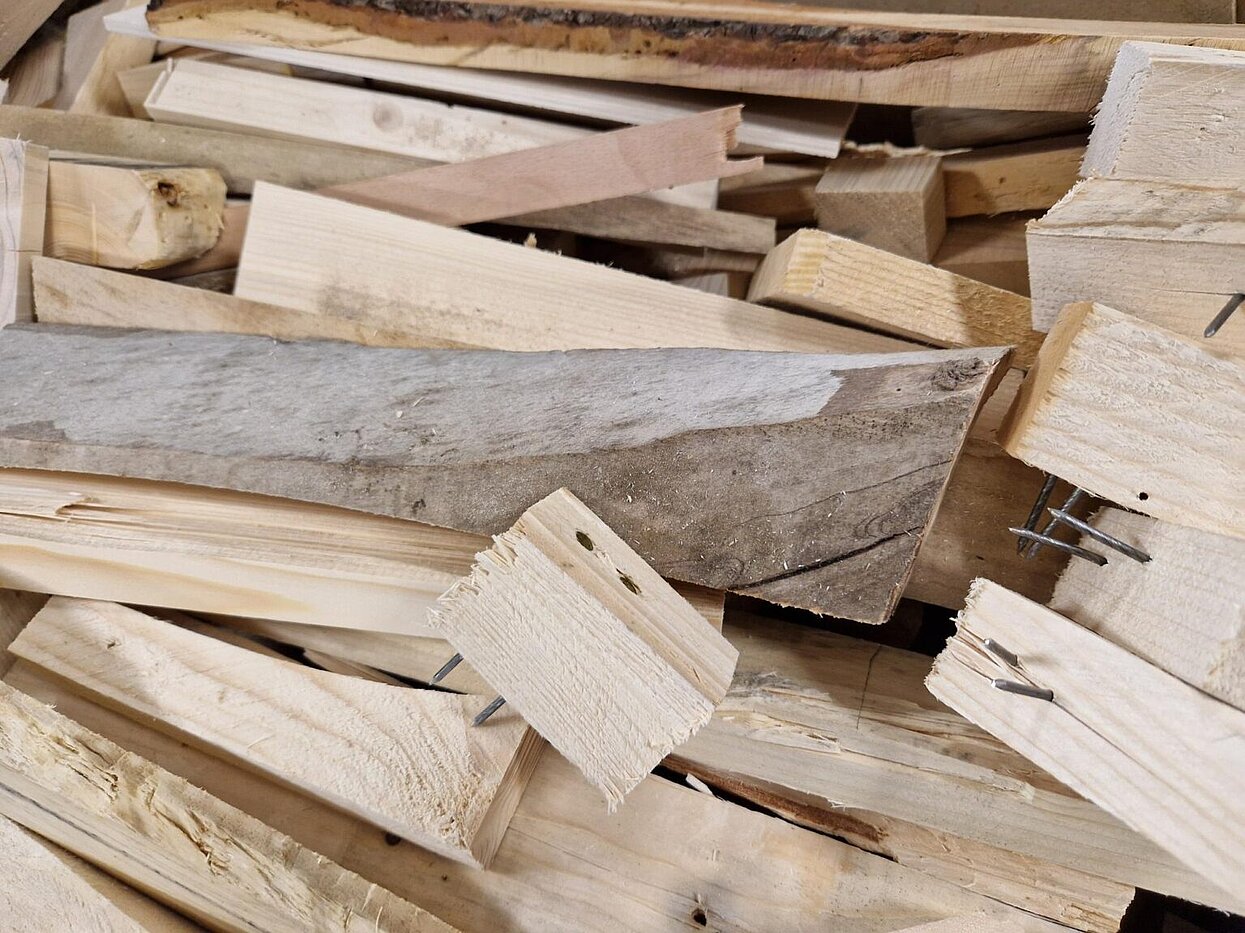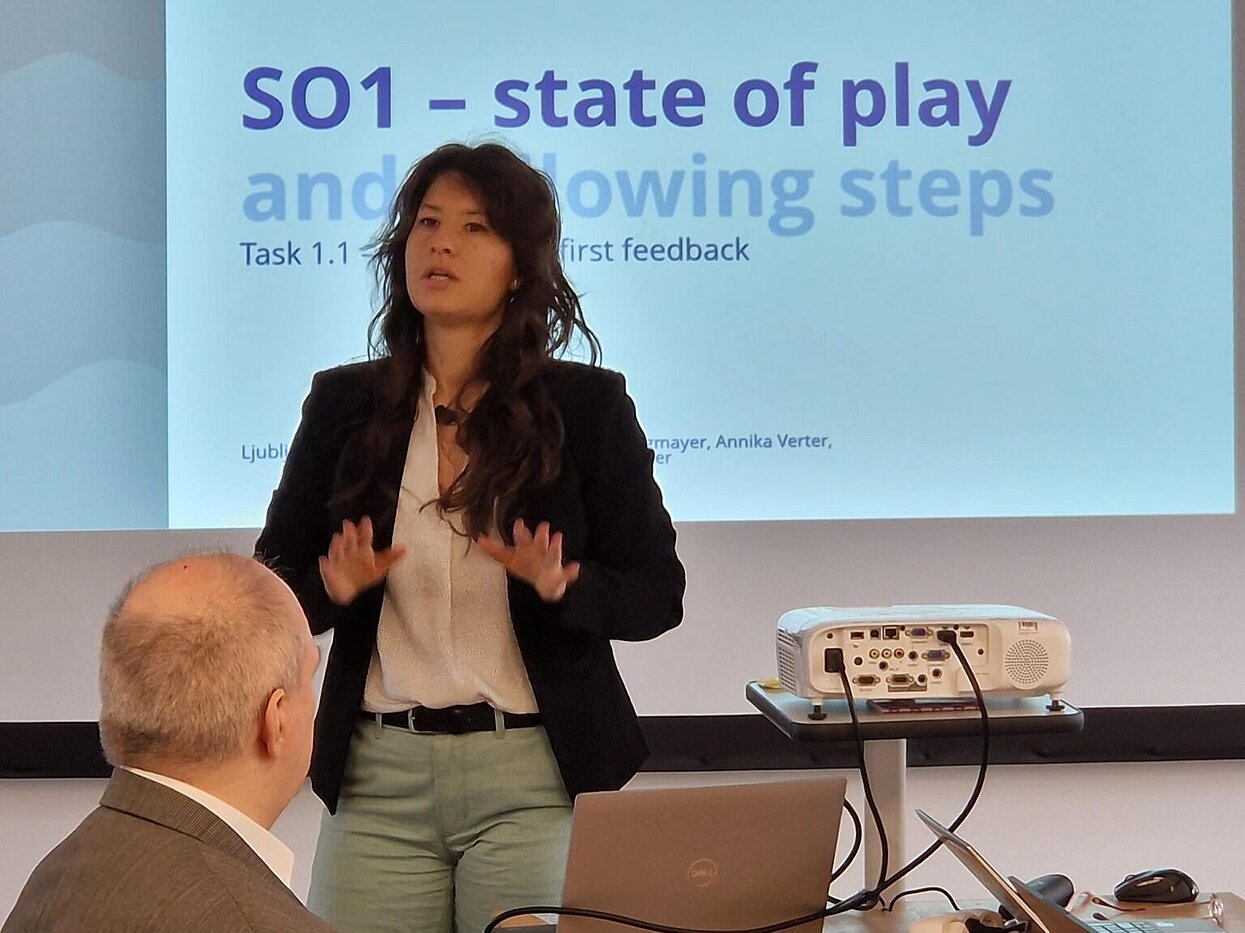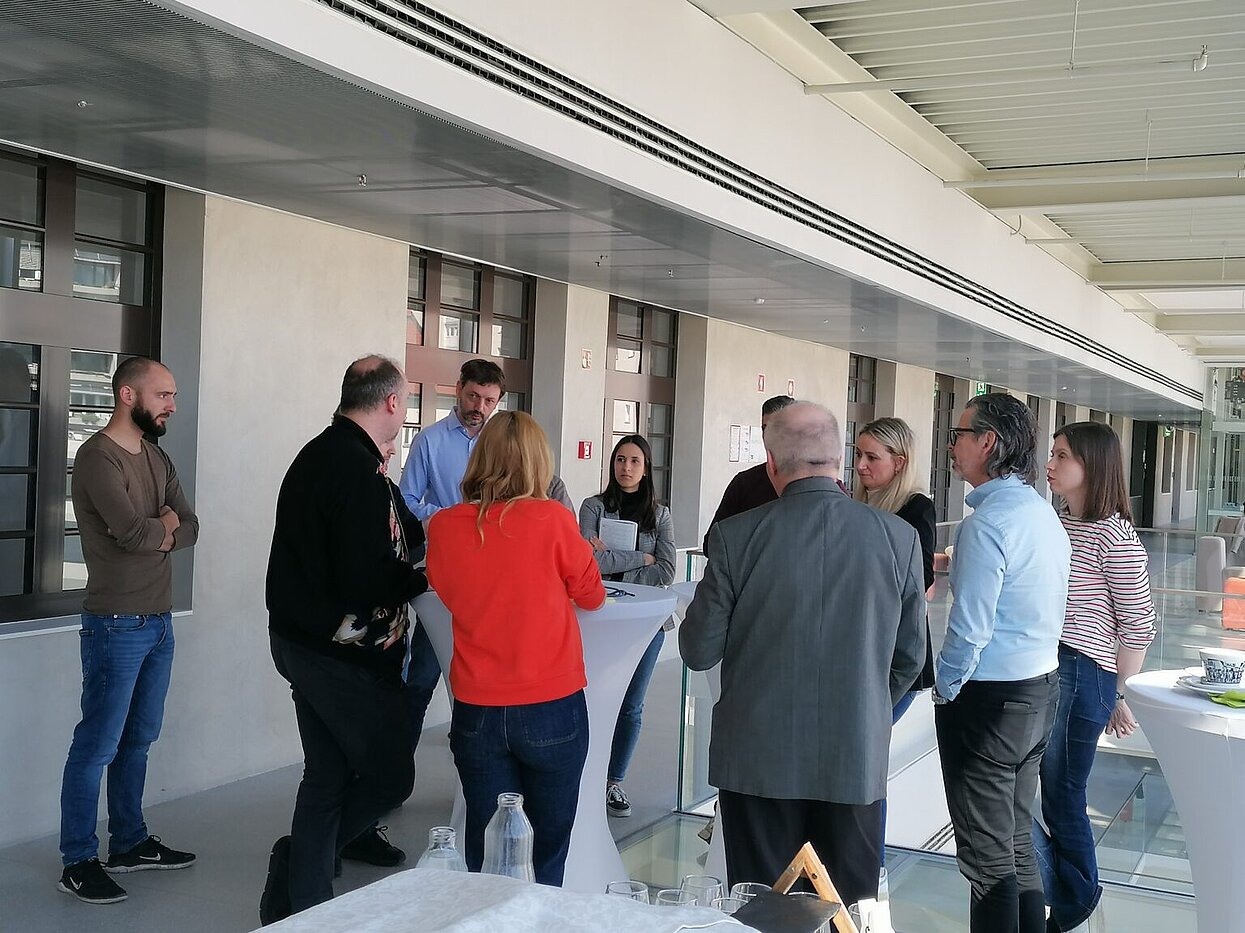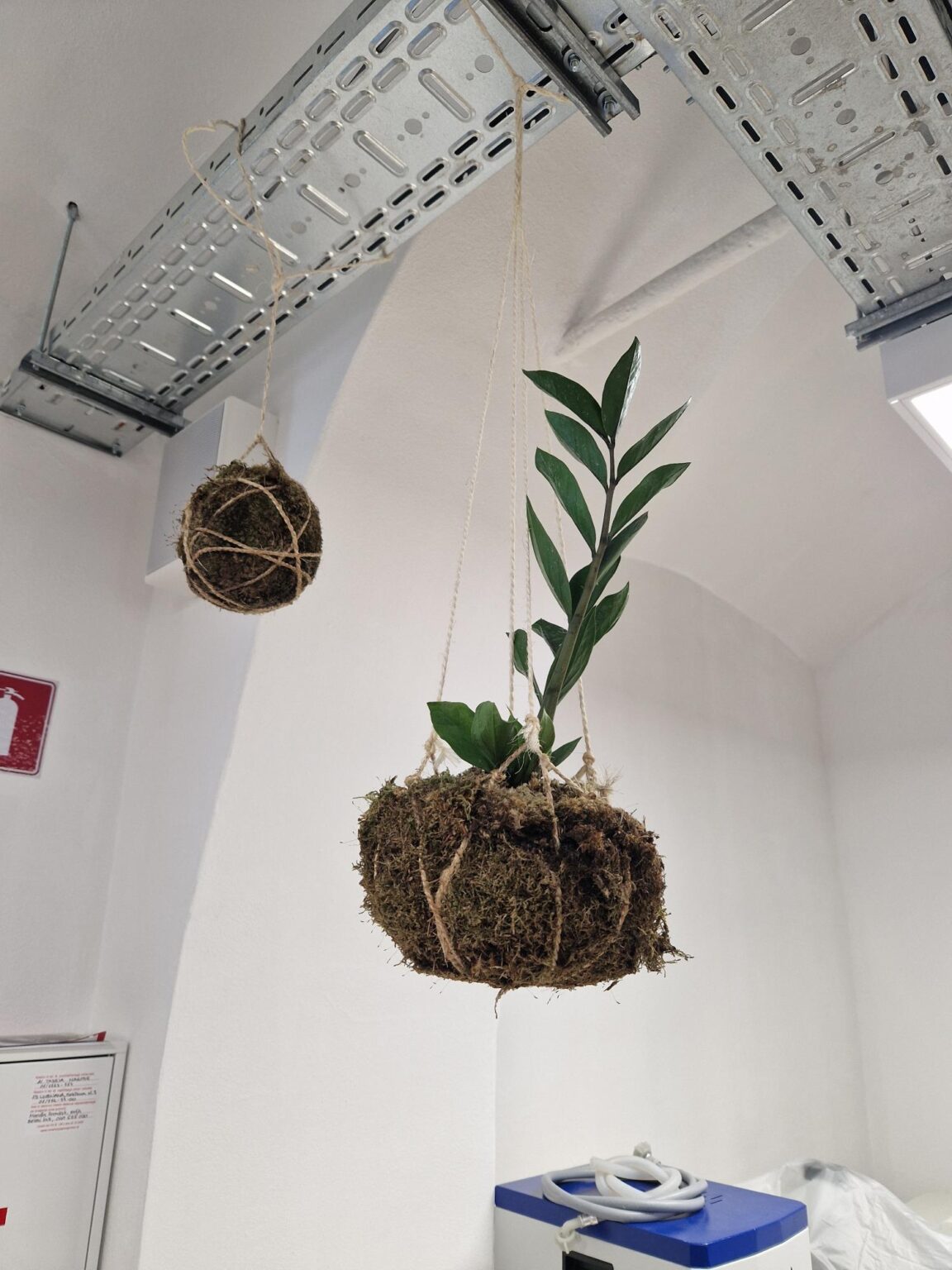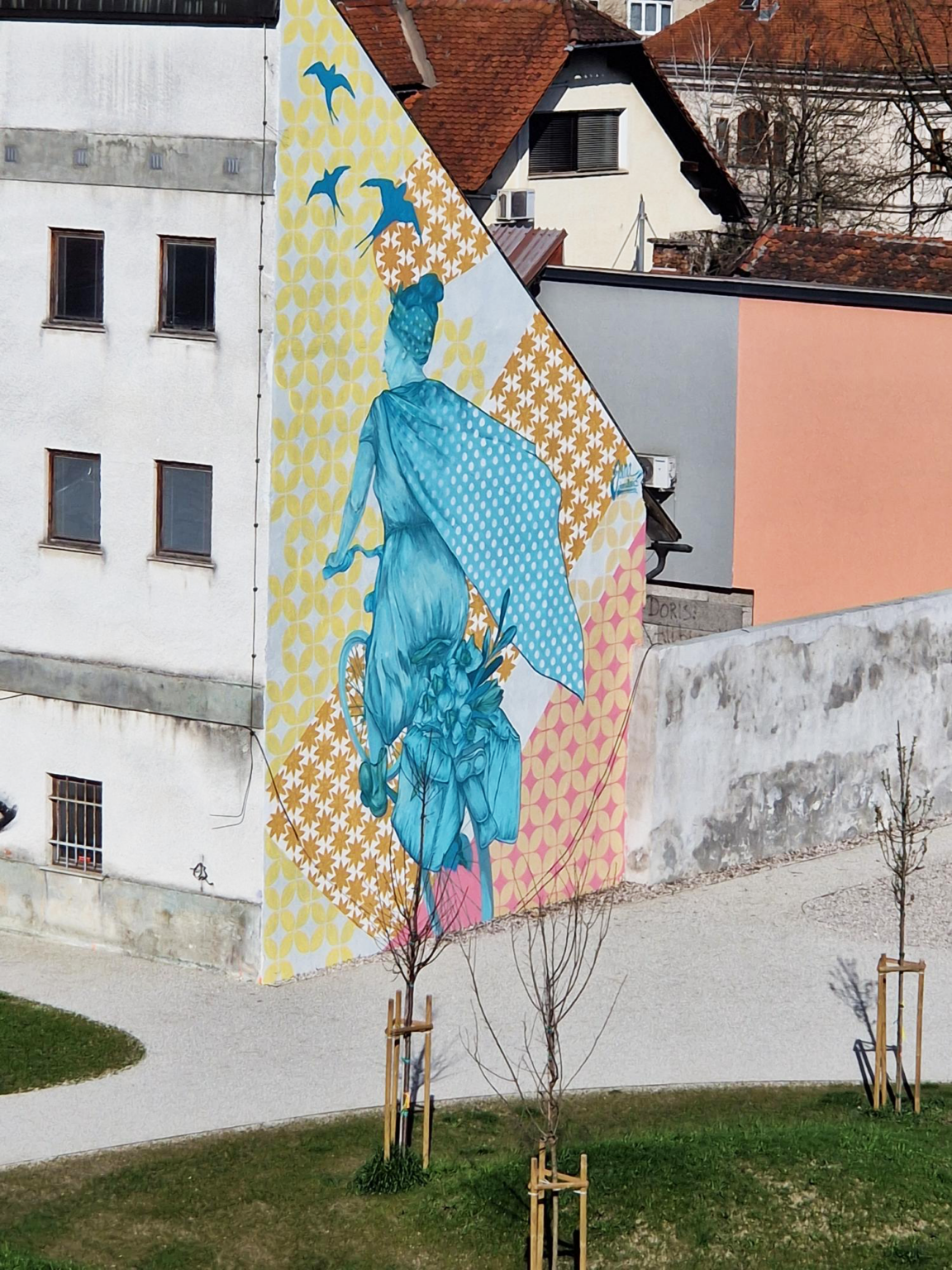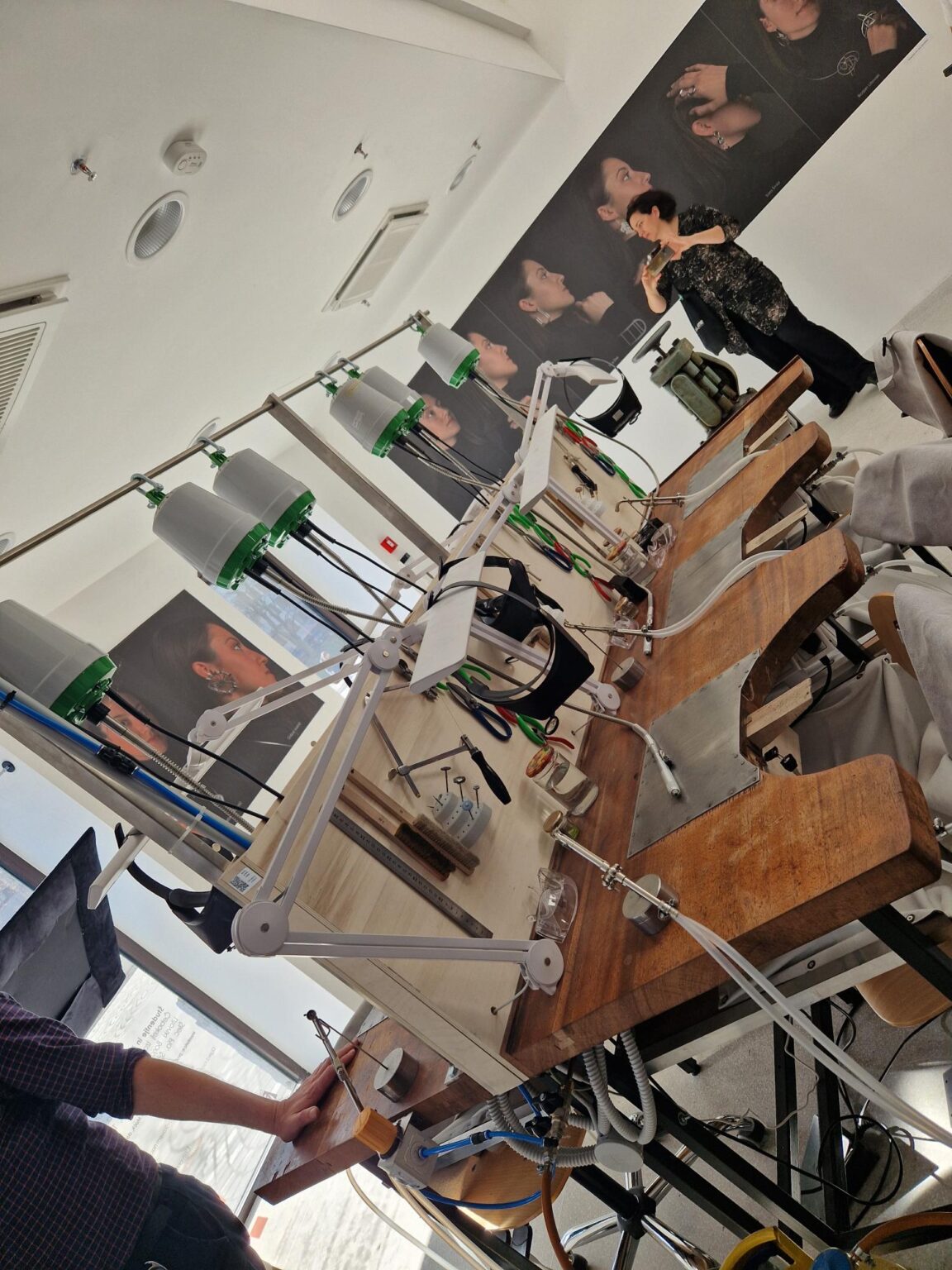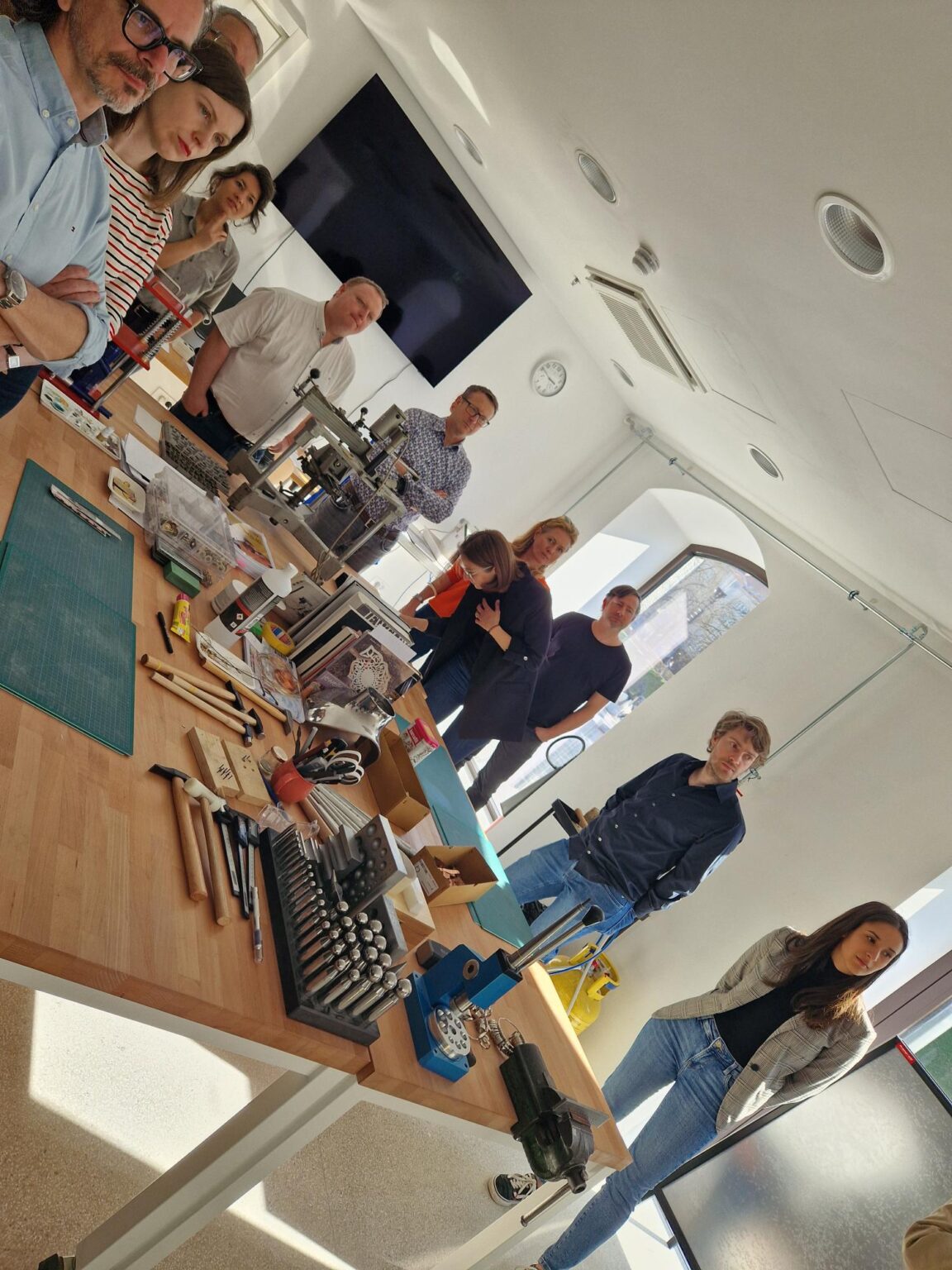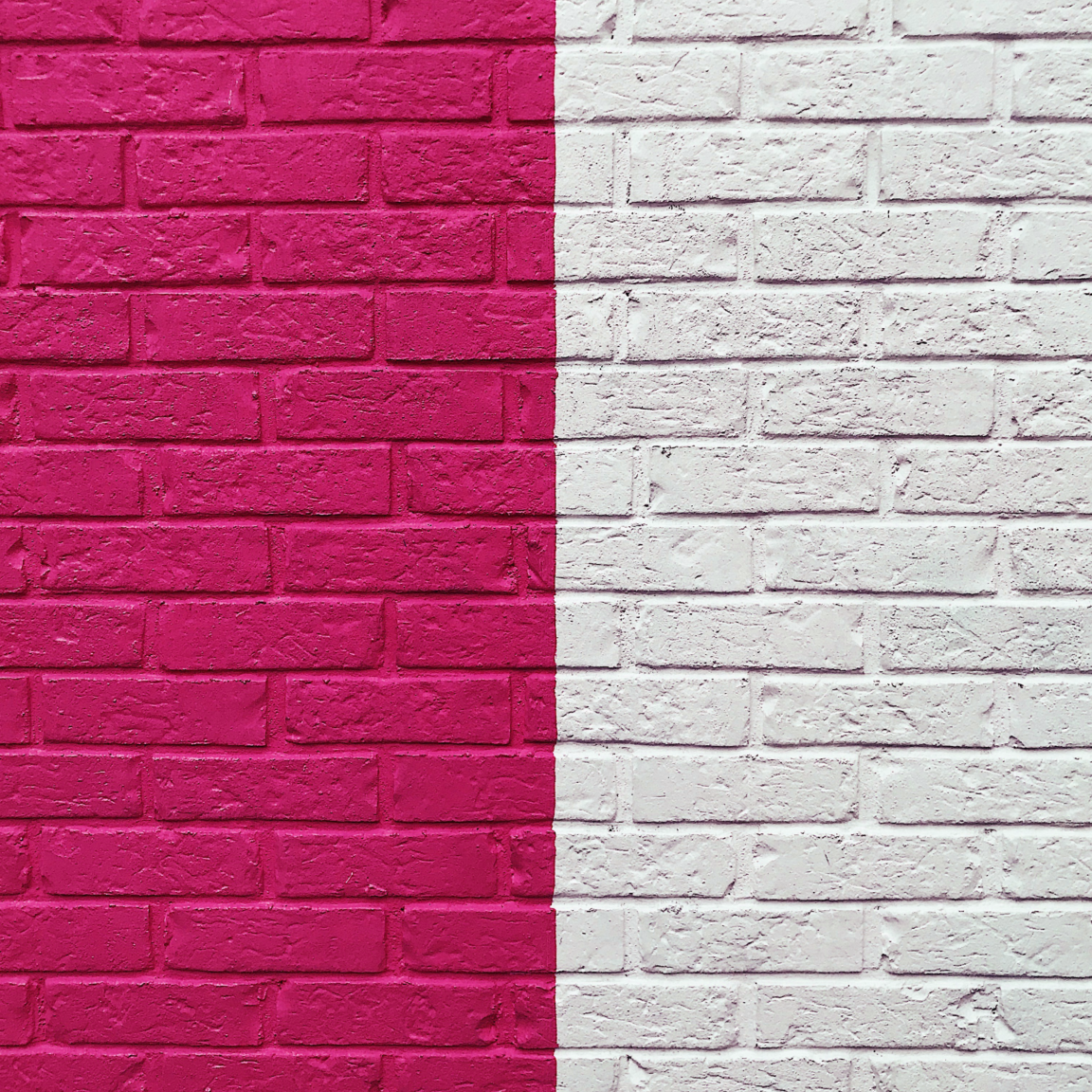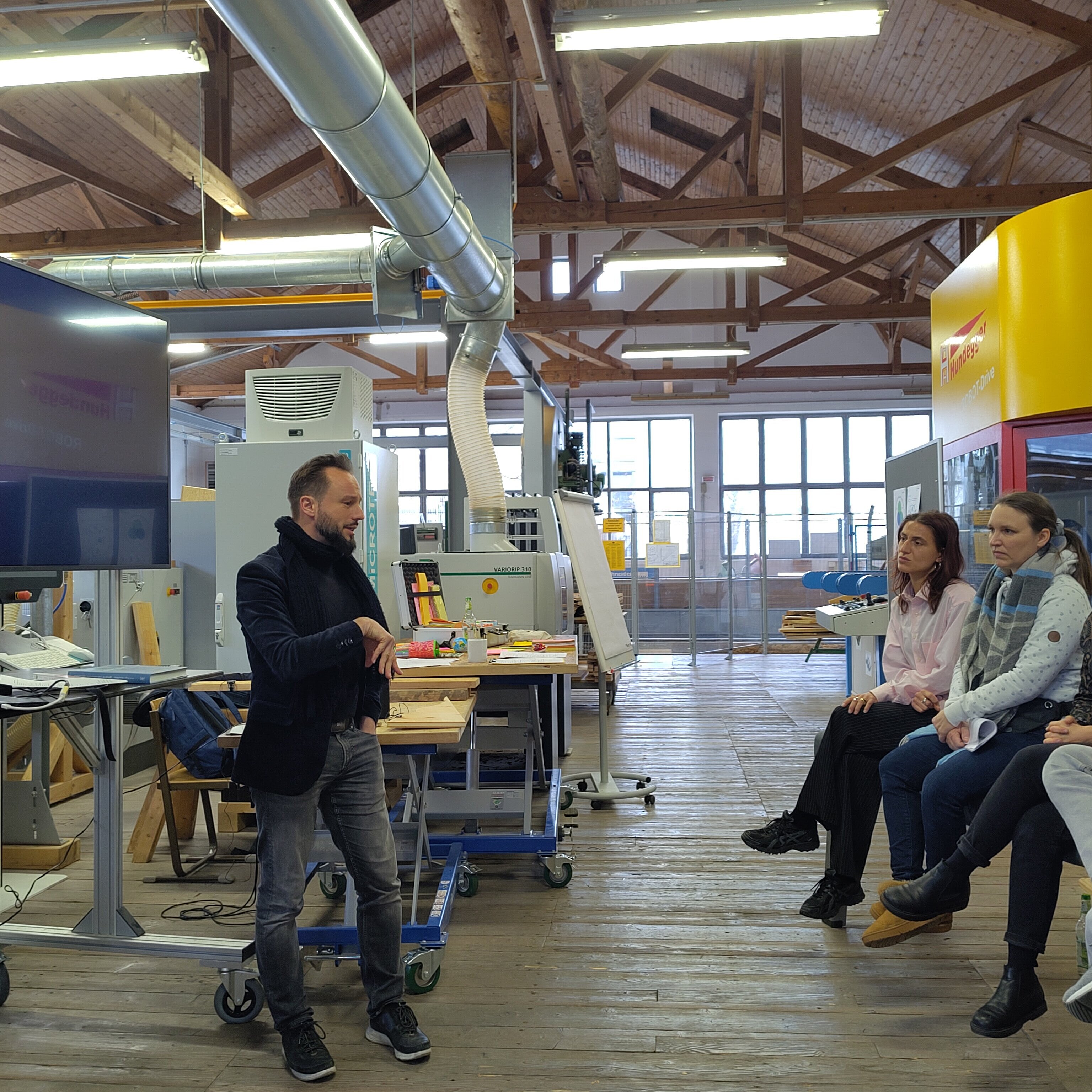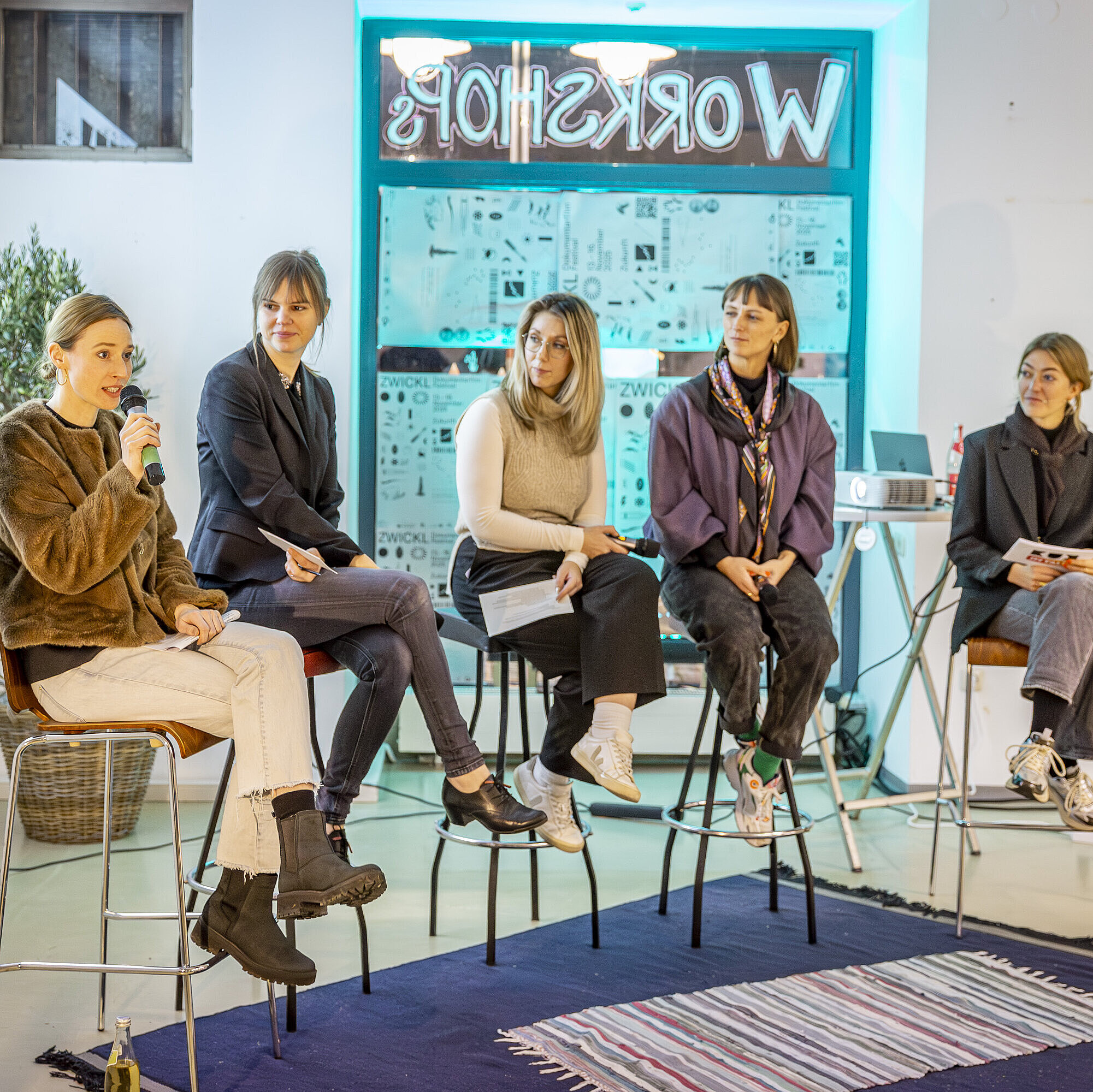27.03.2024
Last week on March 19 and 20, 2024, the DECORATOR consortium came together for a first analog kick-off in beautiful Ljubljana. The aim of this meeting was to gather synergies and assess the status quo to see what can be learned from each other and how the same challenges can be tackled together in the course of the project.
In joint workshops and BarCamps, the participants got to know each other and the project better, gathered learnings and methods from previous projects that could be important for the project and realized that, despite possible small differences, they are basically facing similar problems. These valuable insights served as a starting point for further discussions.
Impetus from the NEW EUROPEAN BAUHAUS (NEB) initiative
There was external input from two specialist presentations, which were underpinned by practical examples. Prof. Dr. Rainer Hirth from Coburg University of Applied Sciences spoke about the reuse of building materials and explained how he was able to implement his Tiny House projects innovatively and in line with the ideology of the New European Bauhaus (NEB) initiative. The start-up company OMC°C from Frankfurt, which focuses on micro climate cultivation, has also found an aesthetic solution to an urban problem with its product. Their vertical greening system brings greenery to large areas of urban space. The modules provide shade, have a positive effect on the microclimate and bind CO₂.
The inclusion of the aspects of the NEB Initiative and the aestheticization of the construction sector also have potential for the implementation of the DECORATOR project, as was discussed in individual working groups. This is because the NEB initiative promotes sustainable construction, innovation, social inclusion, creativity and cultural identity in the construction sector. This can lead to greener buildings, new technologies, inclusive designs, culturally inspired projects and economic opportunities. Overall, aesthetically pleasing buildings and infrastructure can create more attractive and liveable environments. However, conditions for the construction sector vary in the Danube region due to different geographical, cultural, economic and regulatory factors. These include landscape, building regulations, building styles, availability of resources and economic development.
Networking and cultural exchange at Center Rog
The joint exchange between the project partners from the Danube region reinforced the desire to create international platforms where knowledge can be shared and opportunities for collaboration can be explored.
Center Rog, now a co-working space and cultural center, provided an inspiring backdrop for the first face-to-face meeting of the project partners. Once a bicycle factory that was founded in the 1950s and produced bicycles of the Rog brand, which were very popular in Yugoslavia. After production ceased in the 1990s, the complex remained unused for a long time. Converted into a cultural center, it now serves as a meeting place for cultural and creative professionals, activists and collectives for alternative and innovative culture, with events such as workshops, concerts and exhibitions.
The kick-off meeting was a complete success and laid the foundation for a fruitful collaboration. We look forward to taking the next steps and working together to contribute to a sustainable future in the Danube region.
